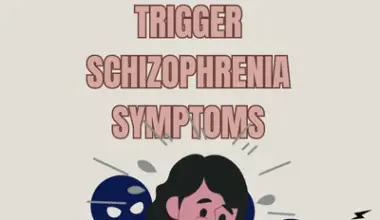Driving requires stable mental health, focus, and sound judgment. For people with psychiatric disorders such as schizophrenia, these abilities can be affected by symptoms like psychosis, mood instability, or cognitive impairment. Can people with schizophrenia drive safely? Medical professionals must assess each patient’s fitness to drive to ensure their safety and that of other road users.
Table of Contents
ToggleCan People With Schizophrenia Drive?
Schizophrenia is a chronic mental health condition that can affect a person’s thinking, perception, behavior, and decision-making. While it’s often misunderstood, many people with schizophrenia can live independently, manage their symptoms with treatment, and participate in everyday activities, including driving.
Yes, people with schizophrenia can drive, but it depends on how well their symptoms are managed. Schizophrenia affects thinking, perception, and judgment, which can interfere with the ability to drive safely. However, many individuals with this condition can still operate a vehicle if they receive proper treatment, follow their medication plan, and are not experiencing active symptoms like delusions, hallucinations, or severe confusion.
In most countries, driving with schizophrenia requires a medical evaluation to determine if the person is fit to hold a driver’s license.
Can I Drive If I Have Schizophrenia?
Yes, people with schizophrenia can drive, but certain conditions must be met to ensure safety for themselves and others on the road. The ability to drive depends on how well their symptoms are managed and whether they are under consistent medical supervision.
When treated effectively, with medication, therapy, and regular doctor visits, many individuals with schizophrenia can drive responsibly. Doctors usually assess mental stability, awareness, and reaction times before determining if someone with schizophrenia is fit to operate a vehicle.
 Can Cognitive Function, Symptoms, and Brain Activity Predict Driving Ability in People With Schizophrenia?
Can Cognitive Function, Symptoms, and Brain Activity Predict Driving Ability in People With Schizophrenia?
Yes, cognitive function, symptoms, and brain activity can help predict driving ability in people with schizophrenia. Driving is a complex task that depends heavily on attention, memory, and decision-making skills.
These are areas that schizophrenia can affect, especially when symptoms are active or not well-managed. Researchers often use cognitive assessments to evaluate a person’s ability to safely operate a vehicle. These tests measure skills like focus, reaction time, and problem-solving which are key factors in determining can people with schizophrenia drive safely on public roads.
When symptoms such as hallucinations, delusions, or disorganized thinking are present, driving becomes more risky. These symptoms can interfere with a person’s ability to stay aware of their surroundings, follow traffic laws, or respond quickly to sudden changes. Even mild symptoms can lead to dangerous situations behind the wheel.
Brain activity also contributes valuable insight into driving ability. Studies using brain imaging have found that some people with schizophrenia have differences in brain regions responsible for processing information, managing attention, and controlling movement. These brain-based changes can affect how someone handles real-world tasks like driving.
No two people with schizophrenia are the same, and driving decisions should be based on individual evaluations rather than broad assumptions. If symptoms are stable, cognitive performance is strong, and brain activity supports quick thinking and attention, driving may be a safe option.
Can I Live a Normal Life With Schizophrenia?
Yes, it is possible to live a normal and fulfilling life with schizophrenia, especially with the right treatment, support, and mindset. Schizophrenia is a long-term mental health condition, but it doesn’t mean a person’s goals, relationships, or dreams are out of reach. Many people with schizophrenia go to school, work jobs they enjoy, maintain friendships and live independently.
Living a normal life with schizophrenia means understanding your condition and actively participating in your treatment plan. This includes attending regular medical appointments, recognizing early signs of symptoms, and making healthy choices like getting enough sleep and managing stress.
Can Schizophrenic People Have a Job?
Yes, people with schizophrenia can work, especially when their symptoms are well-managed with appropriate treatment and support. Employment offers structure, a sense of purpose, and financial independence, all of which are crucial for mental well-being.
Many individuals may choose part-time or flexible roles to reduce stress and accommodate medical appointments, while others may succeed in full-time positions that match their skills and interests. Vocational training, job coaching, and supported employment programs can be invaluable in helping them prepare for and maintain work.
Having a job also improves self-esteem and fosters social connections, both of which are essential for long-term recovery. People with schizophrenia often find success in fields such as art, technology, writing, and customer service, where they can leverage their unique strengths.
What are Good Jobs For People With Schizophrenia?
Good jobs for people with schizophrenia are those that offer structure, flexibility, and low stress. Positions that do not require intense multitasking or high-pressure decision-making are often ideal. Many individuals with schizophrenia thrive in roles such as:
- Data entry
- Library support staff
- Custodial or janitorial work
- Shelf stocking in retail or warehouses
- Animal care roles, such as kennel assistants or pet groomers
These jobs provide a predictable routine, helping to reduce anxiety and support mental stability. Similar to how experts assess whether people with schizophrenia drive by evaluating focus and responsibility, the best jobs align with an individual’s current strengths and treatment progress.
Creative and independent roles can also be excellent choices, especially for those with artistic or technical skills. Examples include:
- Freelance writing
- Graphic design
- Coding and web development
- Crafting or handmade product sales
Such jobs allow people with schizophrenia to work at their own pace, often in a comfortable and familiar environment.
What Accommodations and Protections Exist for People With Schizophrenia at Work?
People with schizophrenia are protected under disability rights laws in many countries, including the Americans with Disabilities Act (ADA) in the United States and the Equality Act in the UK. These laws require employers to provide reasonable accommodations to help employees perform their jobs effectively.
Common workplace accommodations include:
- Flexible scheduling to attend medical appointments
- Reduced workload or part-time hours if needed
- Quiet workspaces to minimize distractions
- Written instructions and clear task lists
- Job coaching or regular check-ins with supervisors
- The option to work remotely if the job allows
Protections include:
- Freedom from discrimination based on mental health status
- The right to confidentiality about medical conditions
- The ability to request accommodations without fear of retaliation
These accommodations and protections aim to ensure that people with schizophrenia can work safely and productively while managing their mental health. Employers are encouraged to foster an inclusive workplace that values each employee’s strengths and supports their unique needs.
 What is the Best Living Situation for Schizophrenics?
What is the Best Living Situation for Schizophrenics?
The best living situation for people with schizophrenia is one that offers stability, safety, and supportive social connections. Many benefit from living in a structured environment, such as supported housing or group homes, where mental health professionals are available to provide care and ensure medication adherence. Others may thrive living independently or with family, as long as they have strong outpatient support and a predictable daily routine to reduce stress and prevent relapse.
Can Someone Lose Their Driver’s License for Having Schizophrenia?
Yes, someone can lose their driver’s license if schizophrenia significantly affects their ability to drive safely. Licensing authorities usually base their decisions on medical evaluations and reports from doctors rather than the diagnosis alone. The Government of the UK says you can be fined up to £1,000 if you don’t tell DVLA about a medical condition that affects your driving. You may be prosecuted if you’re involved in an accident as a result.
Having schizophrenia alone does not automatically mean a person will lose their driver’s license. If a person with schizophrenia experiences severe symptoms such as hallucinations, disorganized thinking, or unpredictable behavior, their doctor may be required to report it to the local licensing authority. In some countries or states, this medical information can lead to a temporary suspension or a request for further evaluation. However, once the symptoms are under control with proper treatment, the person may be allowed to drive again.
If You Have Schizophrenia, Do You Drive a Vehicle?
Yes, many people with schizophrenia do drive vehicles, especially if their symptoms are well-managed and stable. Before driving, it is important to undergo a medical evaluation to ensure it is safe, as symptoms like hallucinations, delusions, or cognitive difficulties can interfere with driving ability. Driving requires focus, quick reflexes, and sound judgment. If someone with schizophrenia is experiencing severe symptoms like hallucinations or disorganized thinking, it may not be safe for them to drive at that time. However, many people with schizophrenia go through periods of stability where they can drive responsibly and confidently. Medical professionals often assess their mental and physical readiness before approving.
Can People With Schizophrenia Drive? 5 Key Facts to Know
Driving with schizophrenia can be complicated. Here are five key facts you should know about schizophrenia and driving.
1. Diagnosis Alone Doesn’t Ban Driving
Being diagnosed with schizophrenia doesn’t mean a person is legally or medically banned from driving. Licensing authorities focus more on whether the condition is stable and well-managed.
2. Symptom Management Is Key
Hallucinations, delusions, or disorganized thinking can make driving unsafe if not properly treated. However, many people with schizophrenia manage their symptoms effectively with medication and therapy. When stable, they can drive just like anyone else.
3. Medical Evaluations Help Ensure Safety
In many places, a doctor’s approval is required for someone with schizophrenia to obtain or keep a driver’s license. These evaluations check if the individual is mentally and physically capable of driving.
4. Driving Privileges Can Change Over Time
Someone with schizophrenia might be cleared to drive during a stable period but may lose that privilege if symptoms return. Regular follow-ups help monitor driving ability and make adjustments when necessary.
5. Support Systems Make a Big Difference
Having strong support from family, doctors, and therapists plays a big role in keeping people with schizophrenia safe behind the wheel. Open communication and honesty about symptoms ensure smart, timely decisions about driving.
 What is Life Like For a Person With Schizophrenia?
What is Life Like For a Person With Schizophrenia?
Life for a person with schizophrenia can be challenging, as they may experience symptoms like hallucinations, delusions, disorganized thinking, and emotional difficulties, which can affect daily functioning, relationships, and work.
David, a 32-year-old graphic designer, was diagnosed with schizophrenia in his early twenties. At first, his hallucinations and paranoia made it hard to keep a job or connect with family. With the right medication, therapy, and strong support from his parents and friends, he rebuilt his life. Today, he works remotely as a freelance designer, maintains his apartment, and enjoys gardening and online gaming with friends, showing that people with schizophrenia can live meaningful, stable lives.
Does Schizophrenia Affect Car Insurance?
Yes, schizophrenia can affect car insurance, but not in every case. Insurance companies usually base their rates and eligibility on driving history, age, location, and overall risk. While mental health conditions like schizophrenia may raise questions about road safety, they are not always directly factored into premiums unless the insurer believes the condition could impair driving ability.
If someone with schizophrenia has a stable treatment plan, no history of accidents, and a clean driving record, they may qualify for standard insurance rates. Insurers are primarily concerned with safety and liability, so as long as a person can demonstrate responsible driving, their mental health condition may not be a barrier. When companies evaluate risk, they often ask if any medical conditions could impact driving. In this context, can people with schizophrenia drive becomes a medical and legal question, and doctors may need to provide documentation confirming that the person is fit to drive.
In some cases, if schizophrenia has led to previous driving incidents or hospitalizations related to symptoms, insurance rates may increase or additional forms may be required. However, many individuals with schizophrenia maintain full driving privileges and are insured without issue.
How Many People With Schizophrenia Drive?
Research suggests that up to 30–50% of people with schizophrenia either have a driver’s license or have driven at some point in their lives. This percentage may be higher in places with strong mental health support systems. Many people living with schizophrenia can drive just like anyone else, holding jobs, running errands, and staying independent. Having access to a vehicle can increase their quality of life and improve daily functioning.
What Is The Organization For Schizophrenia?
Several well-known organizations focus on supporting people with schizophrenia by providing education, resources, advocacy, and research funding. One of the most recognized is the Schizophrenia & Psychosis Action Alliance (S&PAA), formerly known as SARDAA. This nonprofit organization offers support groups, educational materials, and access to mental health experts. Their work aims to improve the quality of life for individuals and families affected by schizophrenia.
Another leading organization is the National Alliance on Mental Illness (NAMI). NAMI provides nationwide support and education for people dealing with all types of mental illness, including schizophrenia. They offer peer-led programs, advocacy efforts, and family education courses.
Internationally, the World Health Organization (WHO) and Schizophrenia International Research Society (SIRS) play a major role in shaping global schizophrenia research and awareness. These organizations work with governments and healthcare providers to improve treatment standards and access to care.
Can You Drive After An Episode Of Psychosis?
Yes, it is possible to drive after an episode of psychosis, but only once a medical professional has confirmed that it is safe to do so. Psychosis can cause a loss of contact with reality, leading to hallucinations, delusions, or confusion, symptoms that can impair judgment and reaction time. Because driving requires full mental awareness, individuals need to go through a recovery period, stabilize their condition, and receive a proper evaluation.
Most healthcare providers recommend waiting until symptoms are fully controlled and the individual has demonstrated consistent stability. Driving after an episode of psychosis depends on how well a person has recovered and whether their symptoms are under control.
Sarah, a 28-year-old teacher, experienced a severe psychotic episode that affected her thinking and perception. She had to stop driving for several months while she stabilized on new medication and attended therapy. Once her doctor confirmed her symptoms were managed and her focus, judgment, and reaction time had returned to normal, she was able to drive again.
How Long Does It Take To Get Out of Psychosis?
The length of time it takes to recover from psychosis varies for each person. Some people may begin to feel better within a few days to weeks with prompt treatment, while for others, it may take several months to fully recover.
James, a university student, experienced his first psychotic episode and started antipsychotic medication immediately. His hallucinations reduced within two weeks, but it took around three months for his thinking to become completely clear and for him to return to classes. Recovery is different for everyone and often depends on how quickly treatment is started and the underlying cause of the psychosis.
Similarly, Maria, a 40-year-old mother of two, experienced psychosis after severe postpartum depression. Unlike James, her recovery took nearly six months due to delays in starting treatment and adjusting medications. While James recovered more quickly, Maria needed longer therapy sessions and gradual reintegration into daily activities. This shows that recovery times can differ widely based on individual circumstances, support systems, and how fast treatment is initiated.
Is it Safe To Live With Someone With Psychosis?
Yes, it is safe to live with someone experiencing psychosis, especially when they are receiving proper treatment and support.
Living with someone experiencing psychosis can be safe, but it depends on their symptoms, treatment status, and whether they pose a risk to themselves or others. Many people with psychosis are not violent and can live safely with family or housemates, especially when they are receiving proper medical care and support.
However, during acute episodes, if the person is paranoid, agitated, or has severe hallucinations or delusions, it can increase risks at home. In such cases, it’s important to seek professional help immediately, ensure medication adherence, and create a calm, supportive environment to promote safety and recovery.
 What Age Does Schizophrenia Start?
What Age Does Schizophrenia Start?
Schizophrenia typically begins in late adolescence or early adulthood, with most people experiencing their first symptoms between the ages of 16 and 30. It is rare for schizophrenia to develop in childhood, though it can occasionally occur before age 16, and it is uncommon for it to start after age 40. Early signs may include subtle changes in thinking, social withdrawal, or unusual behavior before more noticeable symptoms like delusions or hallucinations appear.
What Coping Skills Do People With Schizophrenia Use?
People with schizophrenia use a variety of coping skills to manage symptoms and maintain daily functioning. These include:
- Following medication regimens consistently
- Attending therapy sessions, such as CBT or supportive counseling
- Using relaxation techniques like deep breathing or mindfulness
- Establishing a structured daily routine
- Engaging in creative activities like art or music
- Exercising regularly to improve mood and reduce stress
- Staying connected with supportive family or friends
- Practicing social skills and communication strategies
- Using journals or planners to keep track of appointments and goals
- Avoiding drugs and alcohol to prevent symptoms from worsening
What Mental Illness Can You Not Drive With?
Not all mental illnesses automatically disqualify a person from driving, but certain conditions may affect the ability to drive safely, especially if symptoms are severe or uncontrolled.
Driving restrictions vary by country, but generally, any mental illness that significantly impairs awareness, judgment, reaction time, or causes unpredictable behavior can disqualify someone from driving. This includes severe, untreated schizophrenia with active psychotic symptoms, uncontrolled bipolar disorder with manic episodes, severe depression with suicidal thoughts, or dementia affecting memory and cognition.
Can You Drive If You Have Been Sanctioned?
If you have been sanctioned, such as having your driver’s license suspended or revoked due to medical, legal, or driving-related reasons, you cannot legally drive until the sanction is lifted. For example, if someone with a mental health condition has been deemed unfit to drive by medical authorities, they must undergo reevaluation and be cleared before resuming driving. Driving while sanctioned can lead to legal penalties, fines, or further suspension.
Can Someone With Schizophrenia Be Normal?
Yes. People with schizophrenia can live normal and meaningful lives, especially when their symptoms are well-managed through treatment, medication, and strong support systems. Although they may face challenges that others do not, many can maintain jobs, pursue education, build relationships, and enjoy hobbies just like anyone else. Recovery looks different for everyone, but with the right care and consistency, people with schizophrenia can thrive, achieve their goals, and live fulfilling lives.
How Do Psychiatric Disorders Affect a Person’s Fitness to Drive?
Driving requires sharp cognitive function, emotional stability, and quick responses to complex situations. For individuals with psychiatric disorders, these abilities may be compromised, which is why medical professionals must assess fitness to drive to protect both the individual and public safety.
- Psychiatric conditions like schizophrenia, bipolar disorder, major depressive disorder, and anxiety disorders can impair attention, decision-making, motor coordination, and reaction time, increasing accident risks and making thorough evaluations essential.
- Many with psychiatric illnesses also struggle with substance misuse, which is a clear contraindication for driving or holding a license, as drugs and alcohol worsen cognitive and judgment impairments.
- Driving is dangerous when psychotic symptoms like hallucinations, delusions, or disorganized thinking are present, as these can cause erratic or aggressive driving behavior, especially if delusions involve other road users.
- Doctors must evaluate mental health stability, treatment compliance, and relapse risk before clearing someone to drive. If symptoms are unstable or substance misuse continues, driving privileges should be withheld, and authorities notified if necessary.
What is a Healthy Lifestyle for Schizophrenia?
A healthy lifestyle for someone living with schizophrenia involves balancing medical treatment, daily structure, and self-care. Taking prescribed antipsychotic medication regularly and attending therapy sessions are the foundation of stability. Following a consistent routine with enough sleep, balanced meals, and stress management reduces relapse risk. Just as healthcare providers assess whether people with schizophrenia can drive based on wellness and stability, they encourage lifestyles that support long-term mental and physical health.
Physical activity also plays a key role in improving mood and brain function. Regular exercise like walking, yoga, or swimming helps reduce anxiety, supports cognitive health, and can lessen medication side effects such as weight gain. Staying active boosts confidence and motivation, both important for independence. Maintaining strong social connections, avoiding drugs, limiting alcohol, and committing to follow-up care also support recovery and daily functioning.
 Real-world Driving Behavior in People With Schizophrenia
Real-world Driving Behavior in People With Schizophrenia
Real-world driving behavior in people with schizophrenia can vary based on how well their symptoms are managed. When individuals are stable and receiving regular treatment, their driving behavior is often safe and responsible. However, certain symptoms like difficulty with concentration, slowed reaction time, or impaired decision-making can sometimes affect driving performance, especially during periods of poor symptom control.
Studies show that people with schizophrenia may experience challenges with multitasking, judging distances, or responding quickly in unexpected traffic situations. These cognitive and perceptual difficulties are most noticeable in those who are not receiving adequate treatment or who have recently experienced a psychotic episode. That’s why many healthcare professionals assess both mental and motor functioning before giving driving clearance.
On the positive side, many individuals with schizophrenia who adhere to their treatment plans and have insight into their condition can and do drive successfully. Their driving behavior tends to improve with stability, and many can regain full independence on the road. Like anyone else, experience, support, and health management all contribute to safe driving habits.
Technology and monitoring tools are also playing a role in improving real-world driving outcomes for people with schizophrenia. Some studies have used in-vehicle sensors and driving simulators to track how drivers with schizophrenia respond to common road situations, such as lane changes, traffic signals, and sudden stops. These tools help researchers and clinicians better understand driving patterns and areas where additional support or training might be needed.
Is Schizophrenia a Disability?
Yes, schizophrenia is legally recognized as a disability in many countries, including the United States, the United Kingdom, Canada, and others. It is classified as a serious mental illness that can significantly impact a person’s ability to think clearly, communicate effectively, and function in everyday life. Just like asking can people with schizophrenia drive, the classification as a disability depends on the severity of symptoms and how they affect day-to-day activities such as work, self-care, and social interactions.
People with schizophrenia may qualify for disability benefits, workplace protections, and access to support services designed to promote independence and stability. These benefits can include income assistance, housing support, vocational training, and medical coverage. The goal is to reduce the barriers that come with the condition and help individuals live as fully as possible.
Conclusion
Living with schizophrenia does not mean a person cannot lead a full, independent life. Many can hold jobs, maintain healthy relationships, pursue education, and achieve stability. Employment opportunities, safe housing, and legal protections such as disability rights play a crucial role in helping individuals live with dignity and purpose.
Workplace accommodations, vocational training, and strong social support systems empower people with schizophrenia to build routines that support mental wellness and independence. These same principles apply when determining fitness to drive, as handling responsibilities safely depends on symptom stability, treatment adherence, and functional skills.
If you or someone you know is living with schizophrenia, seek professional guidance, explore support programs, and advocate for accommodations that can empower a safe, independent, and fulfilling life.
More on medcareformind
Ettang Utibeabasi
Hello! I'm Utibeabasi Ettang, a dedicated pharmacist with a deep passion for mental health care. Over the past three years, I’ve developed a strong commitment to making mental health care accessible and acceptable to people around the world, especially those who may be silently struggling. My journey in mental health began during my internship at the Federal Neuro-psychiatric Hospital, where I had the opportunity to work alongside various mental health practitioners and researchers. This experience sparked a profound interest in the field, and since then, I've been focused on bridging the gap in mental health care through education and awareness. I’ve had the privilege of organizing training sessions for team members of multiple mental health NGOs, aiming to enhance their understanding and improve the delivery of mental health services. Through these experiences, I’ve come to realize that there’s a significant need for reliable mental health information and support for professionals and the public. My goal with this platform is to provide resources, insights, and support to individuals who are navigating mental health challenges, while also contributing to the global movement of making mental health care more accessible and less stigmatized. Thank you for being here, and I hope this platform serves as a valuable resource in your mental health journey.



